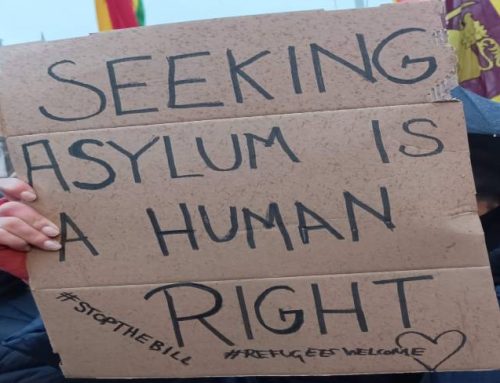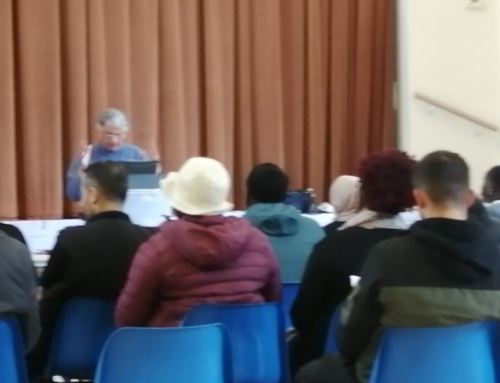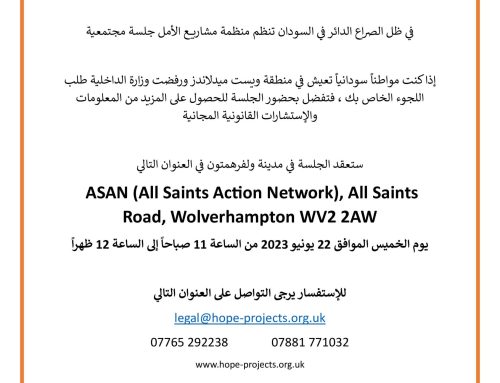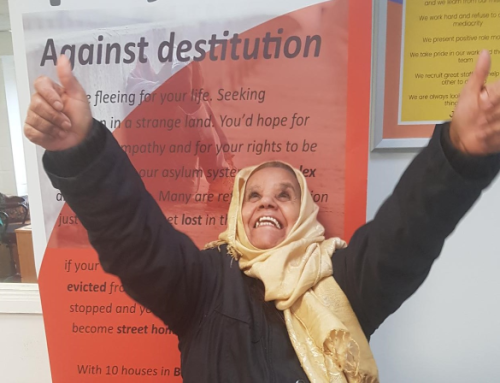Hope is a destitution project. Destitution is a funny word. In the refugee sector we use it a lot. In the outside world not so much. I use it so much I sometimes miss the archaic sound of it. It’s a Victorian sounding word, not really comfortable in modern language. It belongs with gas lamps and mutton chop sideburns. In modern language we talk about poverty, or inequality.
We use ‘destitution’ because we mean something different to poverty or inequality. A little more history, but more recent than the Victorian era. In January 2003 section 55 of the nationality and immigration act came into force. It gave the Home Secretary the power to refuse support to asylum seekers who had not claimed asylum ‘as soon as is reasonably practicable’. The legislation was pushed through an almost empty house of commons on a late night sitting. In effect it meant that hundreds and then thousands of people seeking asylum were thrown out onto the streets in January. ‘Where will I sleep tonight? What will I eat?’. And we could only look at them hopelessly. Like many other people in the sector I ended up taking some clients home, shockingly unprofessional and for which we could have been sacked, but that was in another time, before we were all case-hardened.
In the end, by legal means, we sort of did away with section 55, but destitution as a tool of immigration policy had arrived and has never left. By destitution I mean that a person has no housing, no income and no right to work. They have no housing benefit and so no access to hostels. Nothing. No legal means of support. Sleeping on the street and begging. It’s not poverty. It’s not wealth inequality. It’s destitution. Victorian.
It’s quite easy to become destitute. I often use the phrase ‘slipping through the asylum system’, but that’s not quite right. It implies accident, carelessness. Like when a benefit application gets lost and money is late. It’s not like that. It’s not policy breaking down in the face of reality. It’s policy doing exactly what it’s meant to do. We have made a political choice that in certain circumstances we should starve people living in the UK to force them to comply with immigration decisions that may be demonstrably flawed. It makes the poor laws look generous. And so people sleep on streets. Vulnerable women become prostitutes. People are forced to return ‘home’ to persecution and even death.
No one has a really reliable estimate of the numbers of people destitute in Britain today. Hope Projects supports about 60 people a week in the West Midlands and turns down many more. We’re a small charity. Simple extrapolation gives a number in the thousands.
There is a lively argument to be had about why people ‘fall through’ the asylum system, and my next post will look at this in depth. It’s an important argument, but on one level it’s irrelevant. In what circumstances is it ever right to leave another human being destitute? Never. Not in modern Britain. Not even in the Victorian era.
















A group of us in my north Cornwall village support the refugee center in Plymouth–another much-too-small organization that does the best it can with far less than it needs, and far, far less than its clients need. It’s–okay, I’ve run out of words, trying to describe the heartlessness of what the government inflicts on immigrants. Needlessly.
If only ranting would fix the problem, I’d rant on.